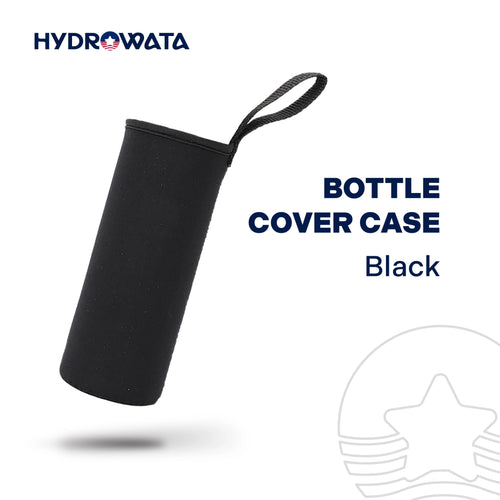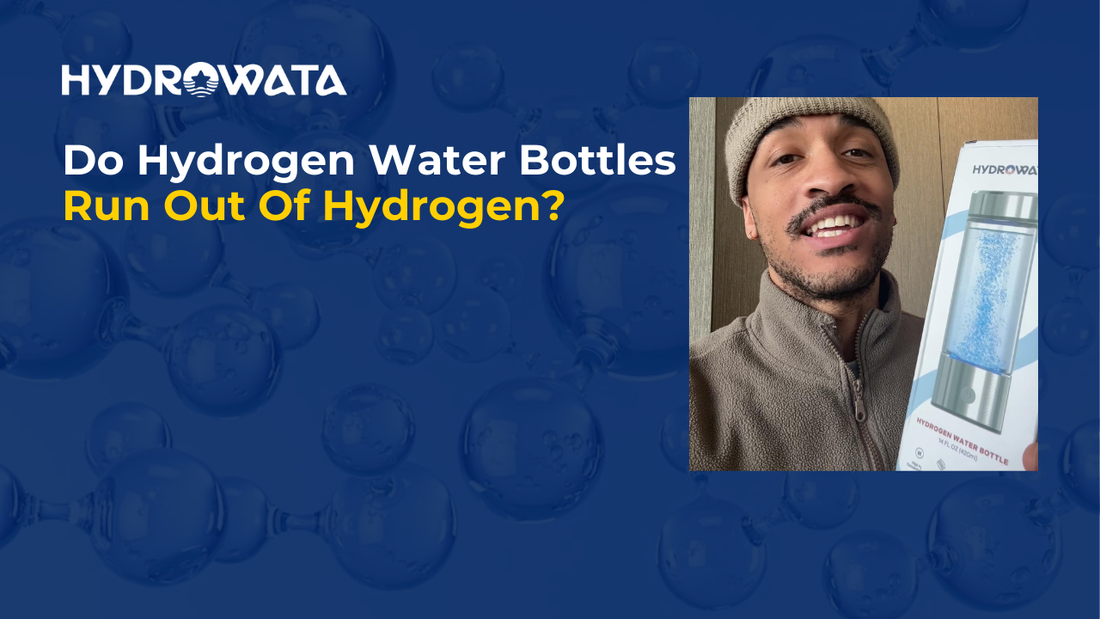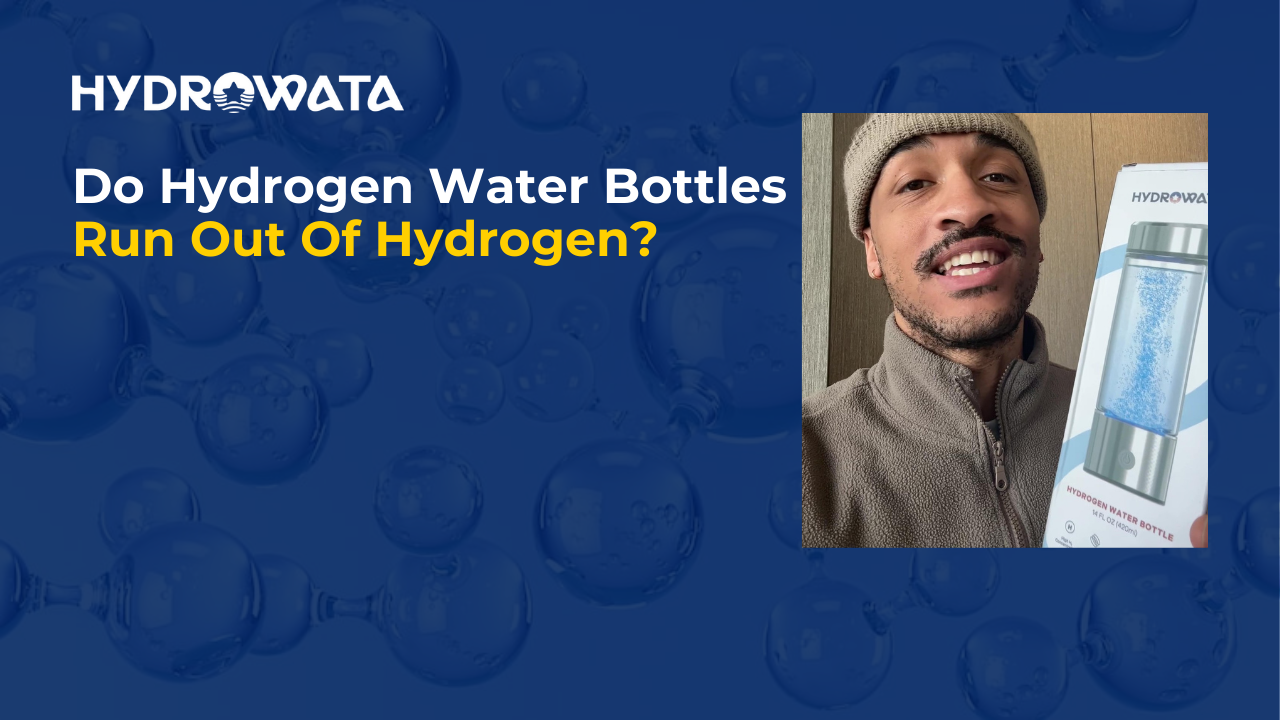Hydrogen water bottles are gaining popularity for their potential health benefits, thanks to molecular hydrogen’s antioxidant properties. But a common question is: do hydrogen water bottles run out of hydrogen?
Unlike traditional bottled water, hydrogen water bottles generate hydrogen gas on demand using electrolysis. This means they don’t contain a fixed amount of hydrogen that can be “used up.” Instead, their ability to produce hydrogen depends on the bottle’s internal components and how well they are maintained. Understanding how these bottles work can help you get the most from your investment and know when to replace parts if needed.
Where Does the Hydrogen in a Water Bottle Come From?

When considering do hydrogen water bottles run out of hydrogen, it’s important to understand where the hydrogen actually comes from.
Hydrogen in hydrogen water bottles is produced through a scientific process called electrolysis. Rather than adding hydrogen directly to the water beforehand, these bottles generate hydrogen gas inside by splitting water molecules (H₂O) into hydrogen (H₂) and oxygen (O₂).
This process happens in a special chamber inside the bottle, where an electrical current stimulates the reaction. The hydrogen gas dissolves in the water, creating “hydrogen-rich water” with potential health benefits.
This innovative technology lets you enjoy fresh, antioxidant-rich water anytime, anywhere, without the hydrogen dissipating over time as it would in pre-packaged hydrogen water.
How Electrolysis Generates Hydrogen
Electrolysis is central to answering the question: do hydrogen water bottles run out of hydrogen? Electrolysis is the core technology behind hydrogen water bottles like HydroWata.
In this process, an electric current passes through water contained within the bottle’s chamber. Water molecules (H₂O) are split into their basic components: hydrogen (H₂) and oxygen (O₂). This reaction occurs at two electrodes—an anode and a cathode—made from special materials that efficiently conduct electricity and withstand corrosion.
At the cathode, hydrogen ions gain electrons to form molecular hydrogen gas, which dissolves into the water, enriching it with hydrogen. Simultaneously, oxygen gas is released at the anode, often vented safely away.
This method produces fresh hydrogen-rich water on demand, without relying on pre-infused hydrogen that may escape over time. The efficiency of electrolysis depends on the quality of the electrodes, water purity, and the electrical system powering the reaction.
The Role of Water in Hydrogen Production
When thinking about do hydrogen water bottles run out of hydrogen, water plays a crucial role. Pure water molecules (H₂O) undergo electrolysis, splitting into hydrogen and oxygen gases. However, the water’s quality significantly influences how effectively hydrogen is generated.
Tap water containing minerals and impurities can reduce electrolysis efficiency and shorten the lifespan of the bottle’s electrodes by causing buildup or corrosion. Many hydrogen water bottles, including HydroWata, recommend using purified or filtered water to maintain optimal performance.
Additionally, the volume of water in the bottle affects how much hydrogen can be dissolved—the more water, the more hydrogen can be infused up to the device’s capacity. Proper hydration and replacement of water after each hydrogenation cycle also ensure fresh, high-quality hydrogen water every time.
Do Hydrogen Water Bottles Run Out of Hydrogen?

The direct answer to do hydrogen water bottles run out of hydrogen is no. Many people wonder, do hydrogen water bottles run out of hydrogen because they assume the gas might be stored inside the bottle.
However, hydrogen water bottles like HydroWata do not run out of hydrogen in the way you might think. Since these bottles generate hydrogen gas on demand through electrolysis, they continuously produce fresh hydrogen-rich water each time you activate the device.
The question do hydrogen water bottles run out of hydrogen often arises from confusion with bottled hydrogen water. Unlike bottled hydrogen water, where hydrogen gas can slowly escape and lose potency, HydroWata’s technology ensures a fresh supply with every use.
However, the bottle’s ability to produce hydrogen depends on the condition of its components, especially the electrodes and membrane responsible for splitting water molecules.
Over time, electrode performance can decline due to mineral buildup, impurities in the water, or regular wear and tear. This can reduce the efficiency of hydrogen production, meaning the bottle might produce less hydrogen gas or take longer to complete a cycle.
HydroWata is designed with durable, corrosion-resistant materials to maximize lifespan, but proper maintenance is essential. Using clean, purified water and following recommended cleaning procedures can keep your bottle producing optimal hydrogen levels for years.
In summary, the bottle doesn’t “run out” of hydrogen—it generates it fresh—but the longevity of hydrogen production depends on proper care and component condition.
Maintaining Peak Performance of Your Hydrogen Bottle
If you’re wondering do hydrogen water bottles run out of hydrogen, it’s important to know how to maintain your bottle to ensure continuous hydrogen production. To keep your HydroWata hydrogen water bottle working at peak performance, regular maintenance and mindful use are essential. Here are key tips to ensure your bottle continues producing high-quality hydrogen-rich water:
Electrodes and Membranes
The electrodes inside the bottle are critical for splitting water into hydrogen and oxygen. Over time, minerals and impurities in water can accumulate on the electrode surfaces, reducing their efficiency. This buildup can also cause corrosion or wear.
Regular cleaning, as recommended by HydroWata’s user manual, prevents deposits and keeps electrodes functioning optimally. Avoid using harsh chemicals—gentle rinsing and occasional descaling with mild vinegar or citric acid solutions are usually sufficient.
Water Quality
Always use purified or filtered water to fill your bottle. Tap water often contains chlorine, minerals, and other impurities that may harm the electrodes or reduce hydrogen production efficiency. Using clean water extends the life of your bottle and guarantees fresher hydrogen water. Avoid using sugary or flavored liquids, as they can damage the internal components.
Charging and Storage
Ensure your bottle is fully charged before use, as low battery can affect the electrolysis process. Store the bottle in a cool, dry place away from direct sunlight. After use, empty leftover water to prevent stagnation or bacterial growth.
Follow Manufacturer Guidelines
HydroWata provides detailed maintenance instructions—following these guidelines will protect your investment and ensure consistent hydrogen levels. Schedule regular deep cleanings and replace parts as advised.
By maintaining your HydroWata bottle properly, you’ll enjoy fresh, hydrogen-rich water daily and extend the life of your device, maximizing your health benefits.
Final Thoughts on Do Hydrogen Water Bottles Run Out of Hydrogen
In conclusion, the question do hydrogen water bottles run out of hydrogen can be answered clearly: no, they don’t. Hydrogen water bottles like HydroWata do not run out of hydrogen gas since they generate it fresh via electrolysis each time you use them. The real factor in hydrogen production longevity lies in the bottle’s components—primarily the electrodes and membrane—and how well you maintain them.
Using clean water, following proper cleaning routines, and storing the bottle correctly ensures consistent hydrogen generation for years. So while your HydroWata won’t “run out” of hydrogen, its performance depends on care. Invest time in maintenance to enjoy the full benefits of hydrogen-rich water every day.





